Children’s sleepaway camps present an exciting chance for them to learn, grow, and gain independence while away from home. On the other hand, parents are left with a feeling of anxiety when they think about their kids going away from their homes.
This complete guide will give parents all that they need to prepare for the sleepaway camp to guarantee the experience is both fun and secure.
Understanding Sleepaway Camps
What is a Sleepaway Camp?
Sleepaway camps, also called overnight camps, are programs where children stay overnight over a set duration of usually one week or up to an entire summer. They include several activities that build character, teach children new skills, and promote social relationships among them.
In these camps, children engage in various recreational, educational, and social activities under controlled environments far from the usual places they live in.
Types of Sleepaway Camps
Traditional Camps
- A Wide Range of Activities: These provide swimming, arts & crafts, and hiking sports, among others, as an all-around experience.
- Community Focus: A blend of teamwork with personal development through play and education is stressed here.
- For Variety Seekers: These are wonderful for kids who like trying out different interests while at camp with the intentions of doing everything possible at once.
Specialty Camps
- Intense Training: This includes concentration on a single discipline such as athletics, music, or science, enabling specific training and performing some particular tasks.
- Skilled Teachers: They are usually run by many experts or professionals, ensuring top-quality coaching and guidance.
- Dedicated Facilities: The availability of specialized facilities/equipment enhances learning outcomes by improving focus towards that niche area in question.
Religious Camps
- Faith-Based Environment: They combine religious education with conventional camp activities to enhance a person’s spiritual and self-development.
- Community and Values: Campers are taught the principles and practices of a given faith, making them feel they belong to one community.
- Balanced Activities: A balanced itinerary for campers includes worship, religious instruction, and other recreational activities.
Benefits of Sleepaway Camps
Personal Growth and Independence
Children attending sleepover camps learn to be independent as they manage their timetables and take care of their belongings. It teaches them self-reliance since they have to go about the day’s routine without any help from their parents, meaning that they make decisions independently and solve problems independently.
Such life skills acquired in camp, such as managing time or being accountable for personal stuff, can be instrumental in boosting confidence in other areas of life.
Social Skills and Friendships
Friendships can be made during camping, where children can interact with others through communal living arrangements, group games, etc. The sense of belonging encourages cooperation within the community, and effective communication plus conflict resolution is essential to one’s growth as a person socially.
Often, these relationships do not end at camp, giving kids more people to associate with throughout their lives.
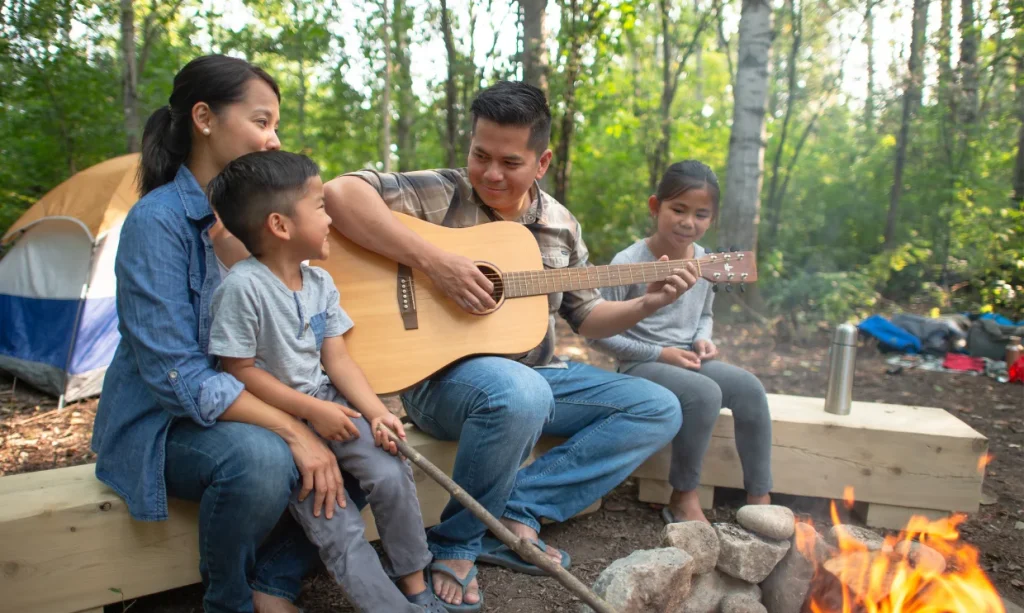
Introduction to New Activities
At camp, children are taught a number of activities that they would not usually be exposed to at home. They include archery, canoeing, or rock climbing. They enable the children to try new things and, become well-rounded individuals, thus promoting physical fitness and outdoor adventure love.
A wide range of activities also helps kids have a better skill base, which builds their confidence and encourages them to start on new hobbies and interests.
Developing Resilience
Campers become more potent when they deal with unfamiliar challenges and conquer their fears. Such experiences entail taking part in high ropes courses or performing various talents in camp acts, among other factors that help such children remain resolute.
They get this way through encouragement from others. Additionally, these environments give room for personal growth because they allow children to feel free to take risks even when necessary since they provide security.
Unplug from Technology
Sending kids away from home for camping can ensure they are off technology devices for some time as they enjoy open-air life. Unlike when digital screens dominate every living space available around the house, the absence of such means will bring out complete involvement in face-to-face conversation or any other sporting event by the young ones.
This break from technology can lead to fewer mental health problems, improve attention spans, and promote an increased appreciation of nature and the simple pleasures in life.
Selecting a Camp
Researching And Recommendations
The first step is researching about camps that match your child’s personality and interests. Getting recommendations from friends, family, or online reviews will help you come up with options for your child’s summer experience.
Find out all you can about each particular camp’s program philosophy, quality standards, and staff members, as this will aid you in determining if your child will fit into it or not. You may want to attend a camp fair or visit an open house at the camps that has caught your attention.
Accreditation And Safety
Confirm the camp’s registration with a reputable agency. The meaning of accreditation is that the facility follows strict benchmarks for health, safety, and program quality, which give parents a sense of peace concerning their children’s welfare.
Ask about their emergency protocols, staff training, and supervision practices.
Philosophy and Values of the Camp
Check if your own philosophies and values correspond to those held by the camp administration. Whereas some emphasize competition or achievement, others focus on community building, cooperation, or character development in individuals.
Please familiarize yourself with their approach to see whether your child would be comfortable there and grow well. Select camps that promote values that matter to you, such as respect for others, inclusiveness, or being stewardship conscious.
Camp Staff And Training
Ask about what ratio of campers to staff is maintained throughout the camping period; what does background information say about counselors’ identity? Please find out how trained they are since well-trained personnel are essential for any summer program’s success.
Make sure this place hires professional individuals who know what it means to create an atmosphere conducive to learning. Additionally, probe into the availability of instructors with basic life-saving skills, including first aid treatment application as well as cardiopulmonary resuscitation, among others.
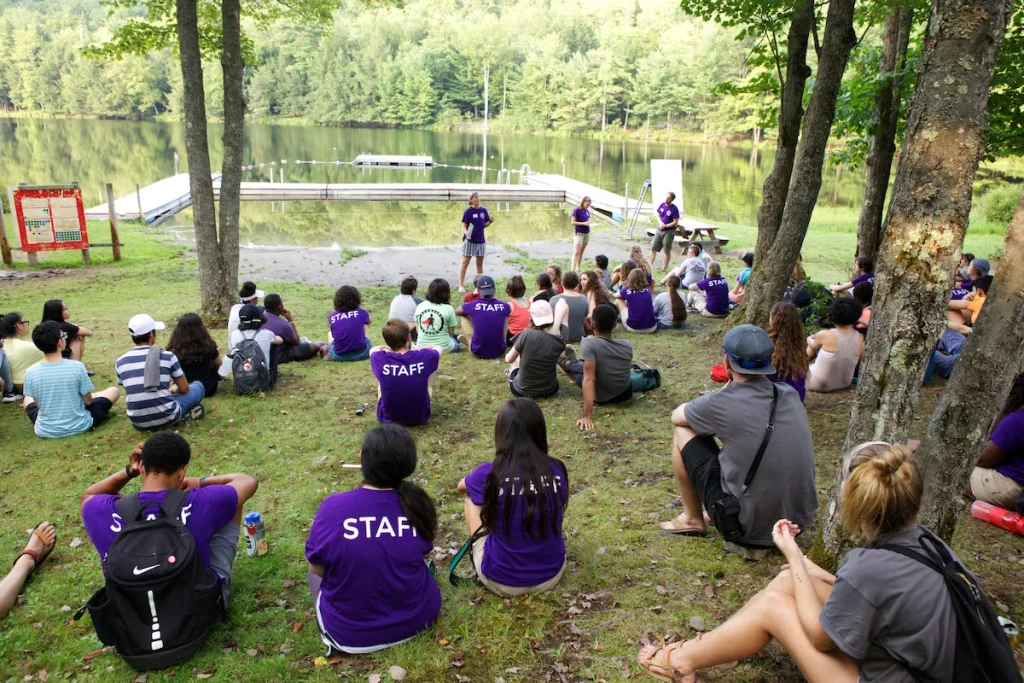
Activities And Programs
Have a glance at what activities and programs are undertaken in any given camp for kids. It would help if you were looking at different options your child can have based on their preferences but also ones that may introduce them to more new things in life.
Confirm whether individualistic interests are catered for alongside teamwork opportunities while checking on creative arts or physical exercises when selecting from different camps suggested here.
Location and Facilities
Think about the location and facilities of the camp, and decide if you prefer camps that are close to home or far away. Examine the camp’s accommodations, food facilities, leisure areas, and safety measures.
Camps with good infrastructure consisting of up-to-date amenities will ensure that your child is comfortable and has a great time while camping.
Cost and Financial Aid
Check out how much it costs to go to the camp and what is included in this price. There are also camps that offer financial aid, scholarships, or even pay plans, which can help you cover some expenses.
Make sure you know about their refund policy in case something goes wrong. Weighing up the cost of sending a child to a camp against the value associated with programs and facilities in such camps will help in making better decisions.
Preparing Your Child
Setting Expectations
Talk to your kid about what they should expect at the camp, including daily activities, lifestyle, and accommodation arrangements. Encourage positive thinking while addressing any fears they may have. Talking more about the camping experience in detail might help ease any anxiety by creating joyous moments instead.
Be frank enough about potential obstacles like homesickness, but make fun parts of going camping appear more realistic.
Building Skills
Help them learn essential skills that will be necessary for their stay at the camp, such as making beds, packing bags, or general personal hygiene. This way, your child will gain confidence and be fully prepared for their stay at camp when practicing these skills at home.
Teach them basic organizational skills so that they can keep track of items during their stay there.
Practice Sleepovers
If your child is anxious about leaving home behind them, then organize several sleepovers either at friends’ or family members’ places, thereby enabling such young people to take time before getting used to this fact.
In addition, these experiences can enable kids to feel more secure staying away from their parents, thereby developing strategies allowing them to cope with homesickness.
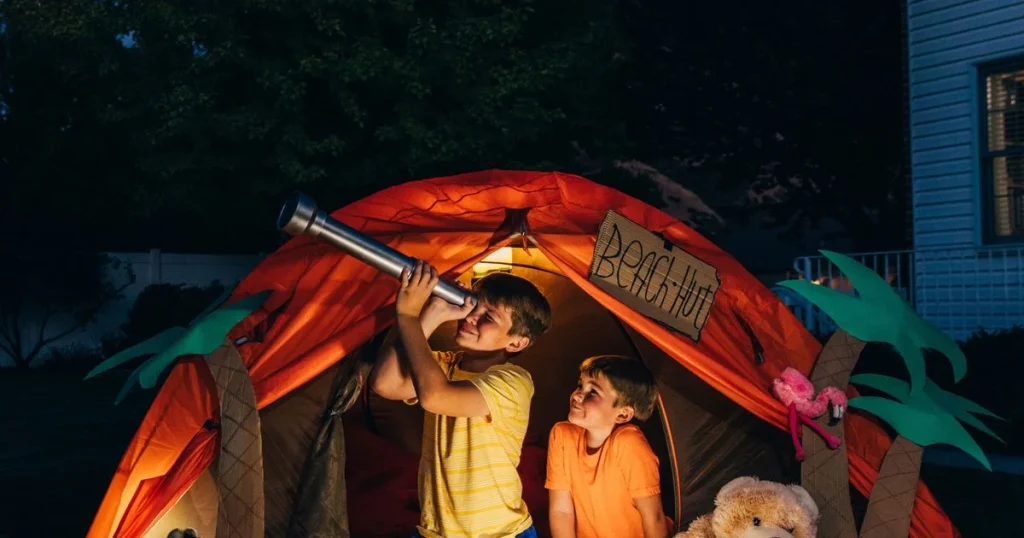
Emotional Readiness
Discuss emotional issues involved in camp, such as making friends, dealing with different types of personalities and homesickness. Please encourage your child to talk about their emotions and let them know that being excited and fearful at the same time is expected.
Help them develop mechanisms for dealing with feelings, including talking to a counselor or writing in a journal.
Health and Safety Preparation
Familiarize yourself with any health or safety instructions from the camp. Ensure that your child understands basic first aid, water drinking importance, and signs of needing help. Have a conversation about safety rules and emergency procedures known by this institution, which will make your kid feel ready and knowledgeable.
Packing Together
Involve your child in the packing process to help them feel more in control and excited about camp. Create a list together so that they understand what each item means to their camping experience. The activity can also be used to stress on keeping one’s belongings tidy and personal hygiene.
Encouraging Independence
Develop independence in your child by giving him/her chances to make their own decisions as well as solve their problems without much assistance from adults. Assign them duties at home similar to those done while camping, like setting tables, preparing simple meals, or having daily routines under their supervision.
Such practices enable them to adjust quickly to the structured environment of camps.
Maintaining Positivity
Always think positively about the camp experience. Show that you believe that they can have fun and meet any challenge they come across on their way. Your optimism and supportiveness can largely shape their attitude towards the camp, therefore making them approach it in a good spirit.
Packing Essentials
Clothing and Gear
- Clothes: Take enough clothes for the entire period of the camp, considering the weather conditions and proposed activities. Bring a mixture of casual clothing, swimming costumes, and outdoor wear to cater to all possible activities and be ready for different seasons.
- Shoes: Stout shoes for outdoors plus comfortable footwear for everyday use. Ensure your child has proper hiking boots, sports shoes, and water sandals to keep them safe and comfortable.
- Bedding: This should include sleeping bags or linen sheets, pillows, and blankets. Familiar bedding items can make your child feel more at home, thus ensuring they get quality sleep.
Personal Care Items
- Toiletries: Complete set of toiletries such as toothbrushes and toothpaste shampoos, among others. Include additional like sunscreen or insect repellent so that your kid is safe from those effects.
- Medicaments: Pack adequate medicine if your child requires it during his/her stay in the camp. Make sure that you also provide clear instructions to the camp staff on how to handle medication administration when dealing with allergies or disease situations. All drugs are required to be appropriately labeled and stored according to the camp’s regulations.
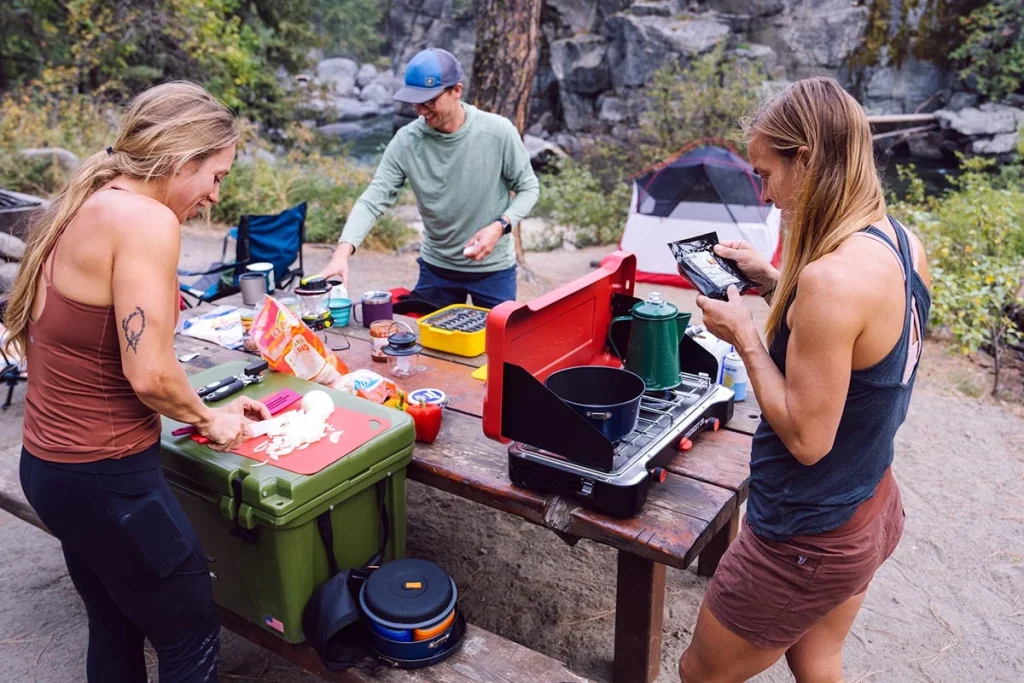
Important Documents
- Medical Forms: Ensure all necessary medical forms have been filled out appropriately and then submitted back in time because these forms contain significant information regarding your child’s health needs, along with emergency contacts.
- Information: Give emergency contact numbers together with any particular care directions you may have about your little one while they are at the camp place so that you can quickly communicate with him/her. And remember that you should keep a copy of this for yourself just in case you have to get in touch with the camp quickly.
Extras
- Comfort Items: A preferred teddy bear or a piece of cloth can go a long way in helping them recover from homesickness. Their emotional comfort and sense of security are essential.
- Stationery: Paper, envelopes, and stamps are needed for writing letters home. Please encourage your child to write letters back home so as to be connected with the family members and share their experiences about camp life.
Health and Safety
Medical Care
Most camps have a nurse or healthcare professional on-site to handle medical needs and emergencies. Ensure the camp knows if your child has any health conditions, allergies, or dietary restrictions that need to be kept in mind.
You will need to complete all the necessary documents concerning your kid’s health history and current medications. Check if they have emergency protocols in place and whether there are standardized ways of administering drugs such as injections.
When it comes to chronic situations, what management practices are available; before the beginning of summer supervision, staff may also want personal attention with regard to some issues.
Safety Protocols
Ask if there are safety measures at the place, such as how it handles its emergencies, including severe weather, fires, and medical incidents. Make inquiries about the staff ratio per camper, plus how counselors deal with accident prevention techniques.
It must also be ensured that counselors have first aid certificates alongside CPR training, while safety drills must be regularly carried out within campsites. Knowing how safe your children will be while in that camp increases one’s confidence level towards taking them there.
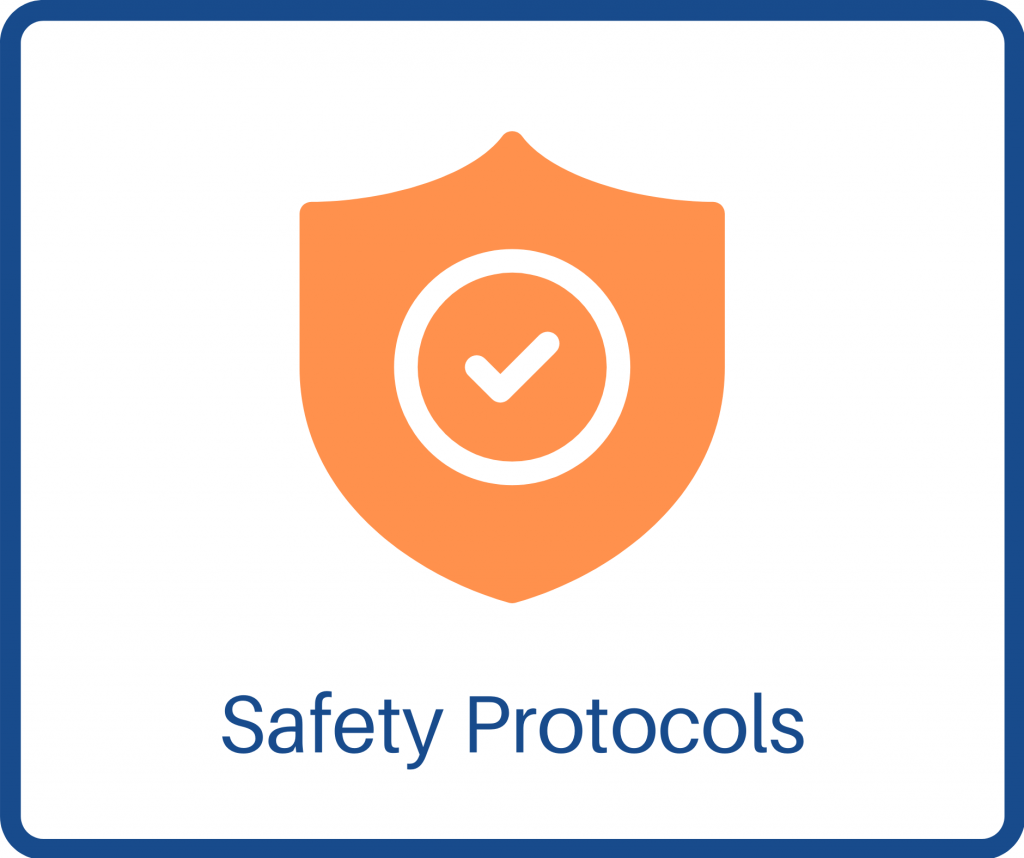
Hydration and Nutrition
Develop a fluid intake attitude for your kid, along with balanced eating in the camp. The camps offer a healthy diet, but you can also remind your child about the importance of proper nutrition.
Urge them to drink more water if they are engaged in physical activities, or it is hot. A majority of camps do have water points throughout their facilities and during games to ensure constant drinking.
Furthermore, make sure that the camp knows about any dietary constraints or food allergies so as to accommodate your child safely. Make your kid understand why they should eat a variety of foods that will help them stay energetic and fit while camping.
Staying Connected

Communication Policies
Familiarize yourself with the camp’s communications policies, thus forming realistic expectations. Some sites permit phone calls or email service; others prefer written letters for self-independence enhancement.
This way, you will be able to plan ahead on how often you can get in touch with your little one while s/he is away from home. Take a moment and discuss these rules with them so that they know when and how they can get back to you.
Care Packages
Sending a care package could assist in keeping contact with one’s child as well as lifting his spirit up from time to time. These include small things like candies, toys, and personal notes that keep reminding them about their home place, for instance, where they live harmoniously before going out for a camping experience.
They also remember to always follow instructions given by camp management regarding what should not be sent inside there premises let alone outside them. Care packages such as these may help raise a smile on her face, thereby showing that I am always aware.
Visiting Days
Parents are free to visit their kids at some point when they would like them to see how far they have come or feel part of their children’s lives, even if it is just briefly. Taking advantage of such chances supports her daughter whilst being involved in her camping trip at the same time.
Periods of visitation like these offer an opportunity to meet her counselors and see the campsite around, making yourself feel connected. It is also good to plan when this will be in accordance with the program of activities that are held at the site, thus enabling you to have a memorable time.
Dealing with Homesickness
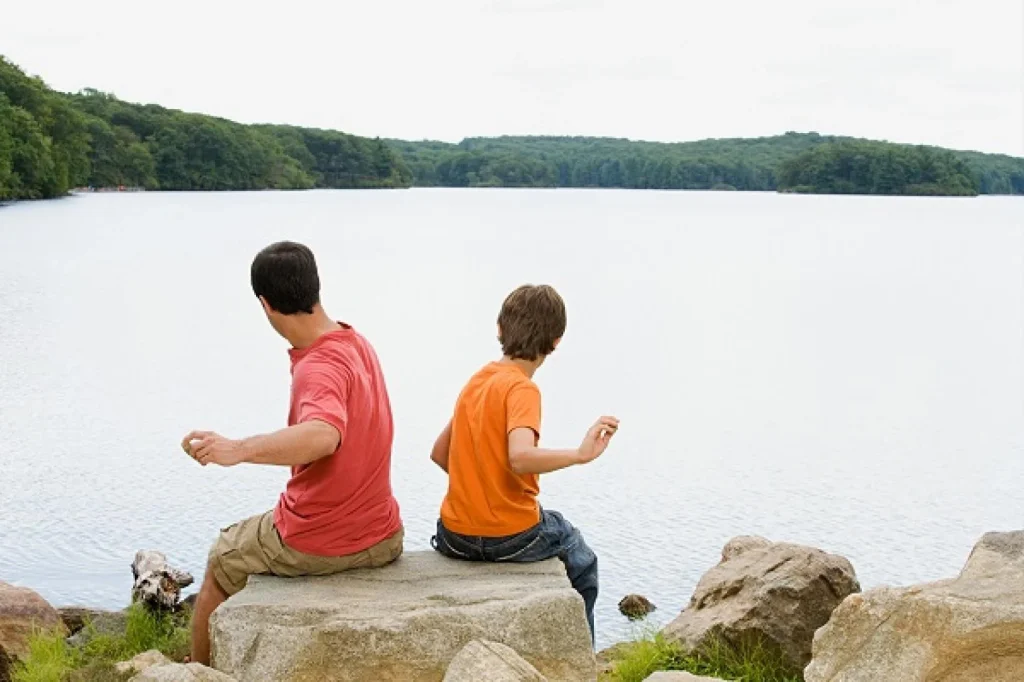
Normalize Feelings
Tell your child that missing home is normal and will go away soon. They can talk about it with their counselors or other kids in the same position. Let them know that missing home is a common feeling, and many kids feel that way during summer camping activities.
Make sure they understand it’s not abnormal for children to feel homesick during camping.
Coping Strategies
Teach your child how they can deal with this condition by having various tactics like reading books, writing letters back home, and leaning on their friends who are supportive of such issues.
Tell her to focus more on what she has gained out of camp life rather than its negative attributes. Make her recollect all past triumphs each time you part as well as lessons learned from previous occasions of being separated, but shifting this phase still stands, though.
Support from Home
Do not let your kid know it when talking to him/her. Please do your best to appear happy about his period at the camp while encouraging him/her. Take this opportunity to send them messages that are full of hope since brighter information given by parents in such situations can easily motivate their children even if they are away from their families.
Thus, I had to express my gratitude for his courageous deeds and advise him to give me updates concerning his wonderful expeditions.
Conclusion
Taking a child to a sleepover camp may result in numerous positive aspects, such as their personal growth, learning experience, and unforgettable moments within just short periods of time.
Selecting an appropriate campsite for them, making good preparations, and having open lines of communication, among others, will help you ensure that your children have a safe and enjoyable camping experience.
FAQs
What Age is Appropriate for Sleepaway Camp?
This depends on the child’s maturity level and readiness, although most sleepaway camps accept children starting from ages seven or eight. Just take note of whether your son or daughter feels free without having you around, plus if he/she could manage some basic personal things when away from you.
How Long Does Sleepaway Camp Last?
Many camps can last from one week to the entire summer. Thus, choose a suitable length for your child and family. It is recommended that young children or first-timers begin with a shorter camp session.
Are There Camps for Special Needs Kids?
Certainly, there are several camps specifically tailored to cater to children with disabilities, providing customized programs as well as trained personnel. Therefore, it is advisable to search for camps that focus on the specific needs of your child so that they receive appropriate support and have great times at camp.
What if My Child Has Allergies or Dietary Restrictions?
It should be noted that parents should inform the respective camping staff if their ward has allergic reactions to some food components or requires special meals due to religious reasons. Many camps have facilities designed especially for dealing with various dietary requirements. Giving comprehensive details and talking about his/her particular condition to the leaders of the institution concerned will guarantee he/she gets what he/she deserves.
How Can I Make Sure My Child Is Safe At Camp?
Consider reputable camps that put much emphasis on safety measures and share this concern with the director at every stage of their activities. Make sure your son/daughter understands simple rules of safe behavior and is aware of how they will be assisted when necessary. If you equip your child with relevant information concerning his/her safety and confidence in seeking help, he/she won’t fear anything.

Russell F. Jones, holding a Master in psychology from the University of Florida. He writes for Smart Parent Solutions, offering practical advice on parenting and child development. His engaging content helps parents navigate family life with confidence and ease. Russell enjoys sharing his knowledge and spending quality time with his family.
